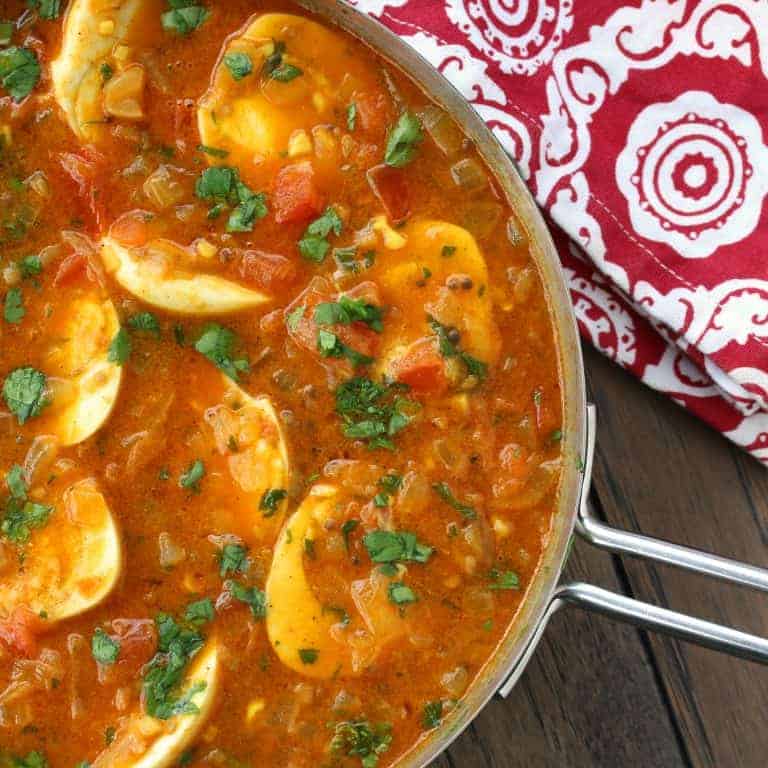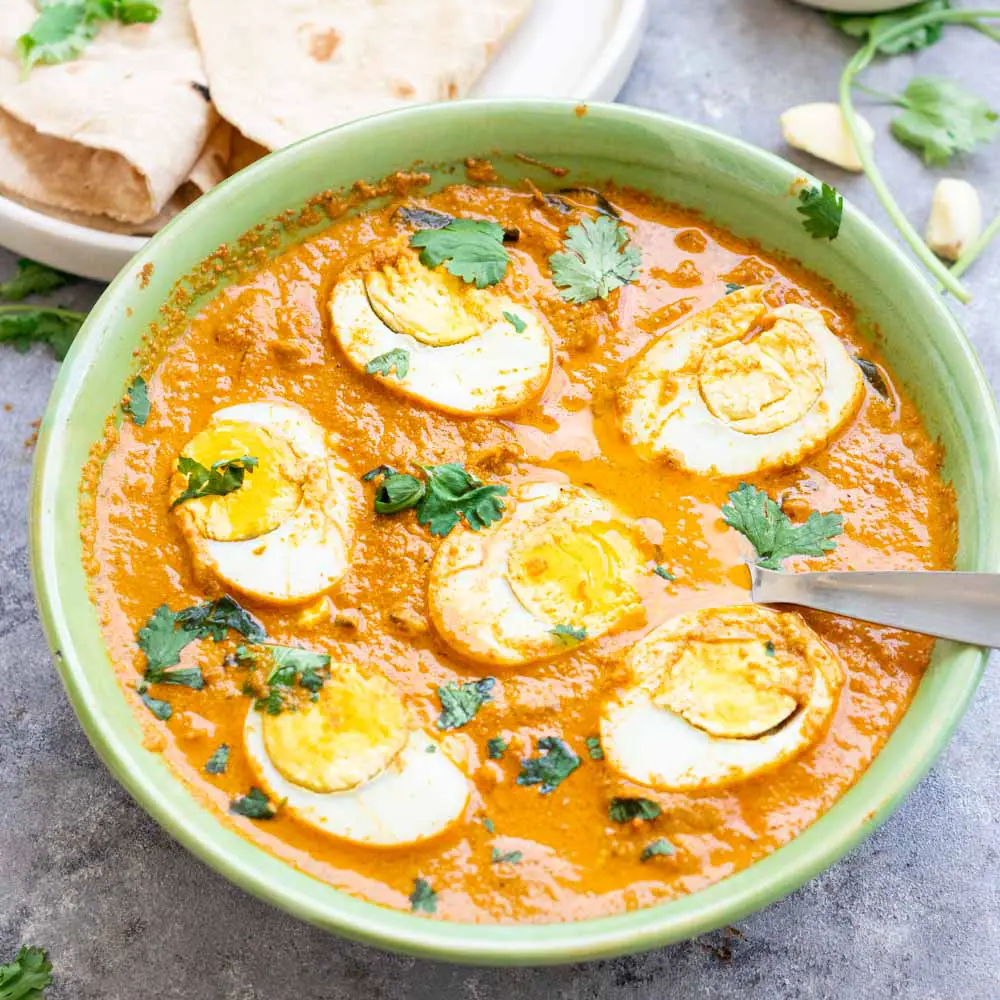Egg curry, a beloved dish in Indian cuisine, tantalizes taste buds with its aromatic blend of spices, creamy texture, and the protein-rich goodness of eggs. From the bustling streets of Mumbai to the serene backwaters of Kerala, egg curry finds its place in every corner of the country, showcasing the diverse culinary traditions of India.
This delectable dish has stood the test of time, evolving with regional influences and personal preferences. Whether you prefer the rich and spicy flavors of North Indian egg curry or the tangy and coconut-infused South Indian version, there’s an egg curry recipe out there to suit every palate.
Introduction to Egg Curry Recipe Indian
Egg curry is a popular and beloved dish in Indian cuisine, enjoyed by people of all ages and backgrounds. It is a versatile dish that can be tailored to suit individual tastes and preferences, making it a staple in many Indian households.
The significance of egg curry in Indian cuisine extends beyond its culinary appeal. It is often associated with comfort and home cooking, evoking fond memories of family gatherings and celebrations. The dish is also a testament to the rich cultural and regional diversity of India, with variations in recipes and cooking techniques across different parts of the country.
Cultural and Regional Variations in Egg Curry Recipes
The cultural and regional variations in egg curry recipes reflect the diverse culinary traditions of India. In northern India, egg curry is typically made with a rich and flavorful tomato-based gravy, while in southern India, it is often prepared with a coconut-based sauce.
In eastern India, egg curry may include mustard seeds and potatoes, while in western India, it is sometimes cooked with green chilies and coriander.
These regional variations not only add to the culinary richness of Indian cuisine but also showcase the adaptability and creativity of Indian cooks. Egg curry, with its ability to be customized and localized, has become a true culinary chameleon, beloved by people across the country.
Ingredients and their Importance
The authentic Indian egg curry is a delightful blend of flavors and textures, achieved through a careful selection of ingredients. Each component plays a vital role in enhancing the overall taste and appeal of the dish.
Essential Ingredients
- Eggs: Hard-boiled eggs are the star ingredient, providing a protein-rich base for the curry.
- Onion: Finely chopped onions add a sweet and savory foundation, while their caramelization brings depth of flavor.
- Tomato: Ripe tomatoes provide a tangy and slightly acidic base, balancing the richness of the dish.
- Ginger-Garlic Paste: This aromatic paste adds a pungent and spicy kick, enhancing the overall flavor profile.
- Turmeric Powder: A vibrant spice that imparts a golden hue and a subtle earthy flavor.
- Red Chili Powder: Adds a moderate level of heat, adjusting to personal preferences.
- Cumin Seeds: Their nutty and warm aroma complements the other spices, creating a harmonious blend.
- Coriander Powder: Provides a citrusy and slightly sweet flavor, balancing the spiciness.
- Garam Masala: A blend of aromatic spices that adds warmth, complexity, and a touch of smokiness.
- Yogurt: Adds a creamy texture and a subtle tang, reducing the spiciness and adding richness.
- Cilantro: Freshly chopped cilantro leaves provide a refreshing contrast to the rich flavors, adding a herbaceous note.
Additional Ingredients for Variation
To cater to diverse preferences and regional variations, additional ingredients can be incorporated:
- Green Chillies: For those who prefer a spicier curry, adding chopped green chillies enhances the heat level.
- Cashews: Roasted and ground cashews add a nutty texture and a creamy richness to the curry.
- Fenugreek Leaves: Fresh or dried fenugreek leaves impart a slightly bitter and earthy flavor, adding complexity.
- Coconut Milk: Substituting yogurt with coconut milk creates a creamy and flavorful variation.
Step-by-Step Cooking s
Now, let’s embark on the culinary adventure of preparing a tantalizing egg curry. We will meticulously guide you through each step, ensuring a flavorful and satisfying outcome.
Preparing the Eggs
Begin by carefully selecting fresh, high-quality eggs. Gently boil them in water until they reach your desired doneness. For a soft-boiled egg, cook for 6-7 minutes, while for a medium-boiled egg, aim for 9-10 minutes. Once cooked, immerse the eggs in cold water to halt the cooking process and prevent overcooking.
Creating the Base Sauce
In a large skillet or pot, heat some vegetable oil or ghee. Add finely chopped onions and sauté until they turn translucent. Next, add minced garlic and ginger and cook until fragrant. Stir in a blend of ground cumin, coriander, turmeric, and chili powder, along with salt to taste.
Cook for a minute or two, allowing the spices to bloom and release their aromatic flavors.
Adding Spices and Seasonings
Now, pour in a can of coconut milk and bring to a simmer. Add the boiled eggs, ensuring they are fully submerged in the sauce. Season with garam masala, curry leaves, and fresh cilantro for an authentic Indian touch. Adjust the heat to medium-low and allow the curry to simmer gently for 10-15 minutes, or until the eggs are heated through and the sauce has thickened slightly.
Cooking the Curry to Perfection
Taste the curry and adjust the seasonings as needed. For a richer flavor, you can add a dollop of plain yogurt or a squeeze of lemon juice. Serve the egg curry hot with steamed rice, naan bread, or roti, and garnish with fresh coriander leaves for an aromatic touch.
Serving Suggestions and Accompaniments

Egg curry is a versatile dish that can be enjoyed with a variety of accompaniments. Traditionally, it is served with steamed rice or roti, a flatbread made from whole wheat flour. Other popular accompaniments include paratha, a layered flatbread, and naan, a leavened flatbread.
Modern Accompaniments
In modern times, egg curry has become increasingly popular as a street food. It is often served with a side of chopped onions, cilantro, and a squeeze of lime juice. This adds a refreshing brightness to the rich flavors of the curry.
Nutritional Value and Health Benefits

Egg curry is not only delicious but also highly nutritious. It is an excellent source of protein, providing essential amino acids for building and repairing tissues.
In addition to protein, egg curry also contains a variety of vitamins and minerals. These include vitamin A, which is important for vision and immune function, vitamin D, which is essential for bone health, and iron, which is necessary for red blood cell production.
Health Benefits
Consuming egg curry offers several health benefits. The high protein content helps to promote satiety, making it a good choice for weight management. The vitamins and minerals in egg curry also support overall health and well-being.
- Improved heart health: The protein in egg curry helps to lower cholesterol levels and reduce the risk of heart disease.
- Stronger bones: The vitamin D in egg curry helps to absorb calcium, which is essential for bone health.
- Boosted immunity: The vitamin A in egg curry helps to strengthen the immune system and protect against infections.
- Reduced inflammation: The antioxidants in egg curry help to reduce inflammation throughout the body.
Conclusion
In conclusion, egg curry holds a cherished place in Indian cuisine, transcending regional boundaries to become a beloved dish enjoyed by people of all ages. Its versatility extends from everyday meals to special occasions, catering to diverse palates and preferences.
The harmonious blend of spices, the velvety texture of the gravy, and the tender egg morsels create a symphony of flavors that tantalize the taste buds. Egg curry not only nourishes the body but also enriches the cultural fabric of India, serving as a culinary testament to the country’s rich culinary heritage.
Last Point
Egg curry is more than just a meal; it’s a testament to the vibrant and diverse culinary heritage of India. Its versatility allows for endless variations, making it a dish that can be enjoyed by people of all tastes and preferences.
Whether you’re a seasoned cook or a novice in the kitchen, preparing egg curry is a rewarding experience that will undoubtedly leave you craving for more.
FAQ
Is egg curry a vegetarian dish?
No, egg curry is not considered a vegetarian dish as it contains eggs, which are an animal product.
Can egg curry be made vegan?
Yes, it is possible to make a vegan version of egg curry by replacing the eggs with tofu or chickpeas.
What are some common variations of egg curry?
Egg curry recipes vary depending on the region and personal preferences. Some popular variations include North Indian egg curry, South Indian egg curry, and Bengali egg curry.
What are the health benefits of eating egg curry?
Egg curry is a nutritious dish that provides protein, vitamins, and minerals. It is also a good source of antioxidants and can help boost the immune system.
How can I store leftover egg curry?
Leftover egg curry can be stored in an airtight container in the refrigerator for up to 3 days.
